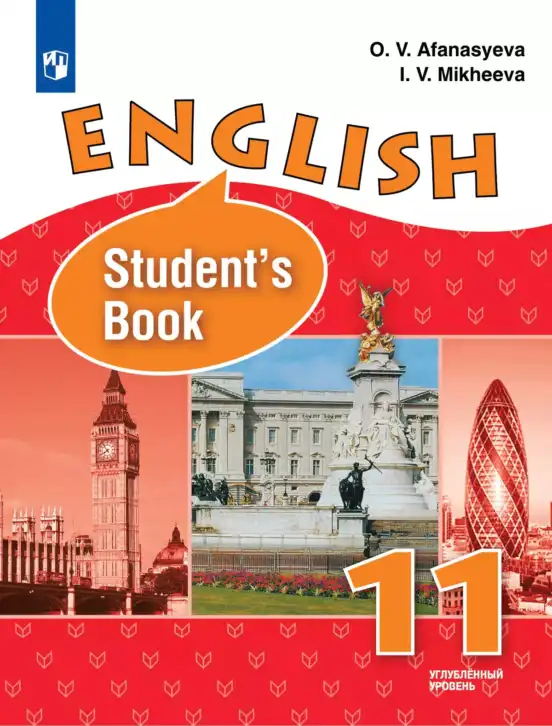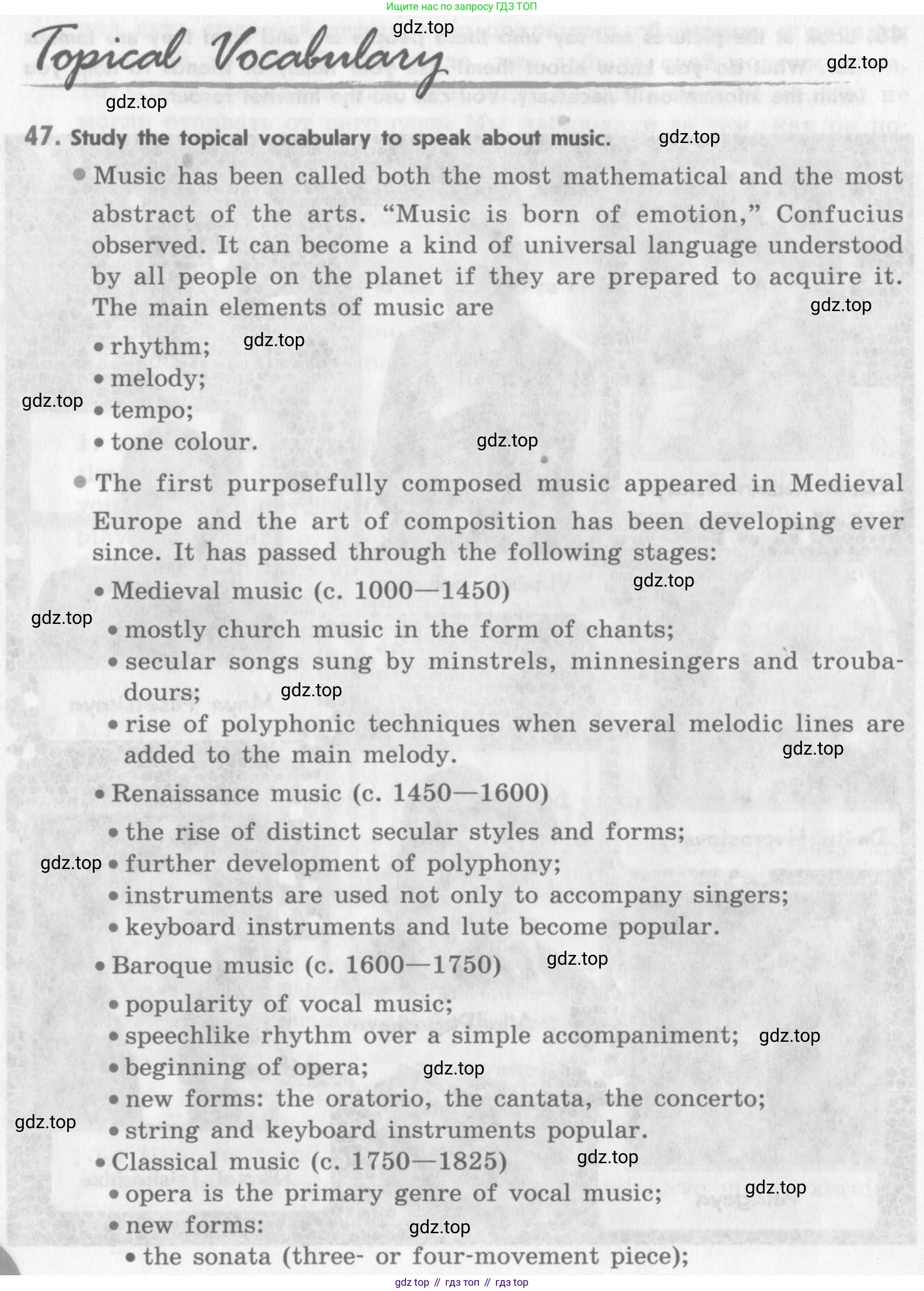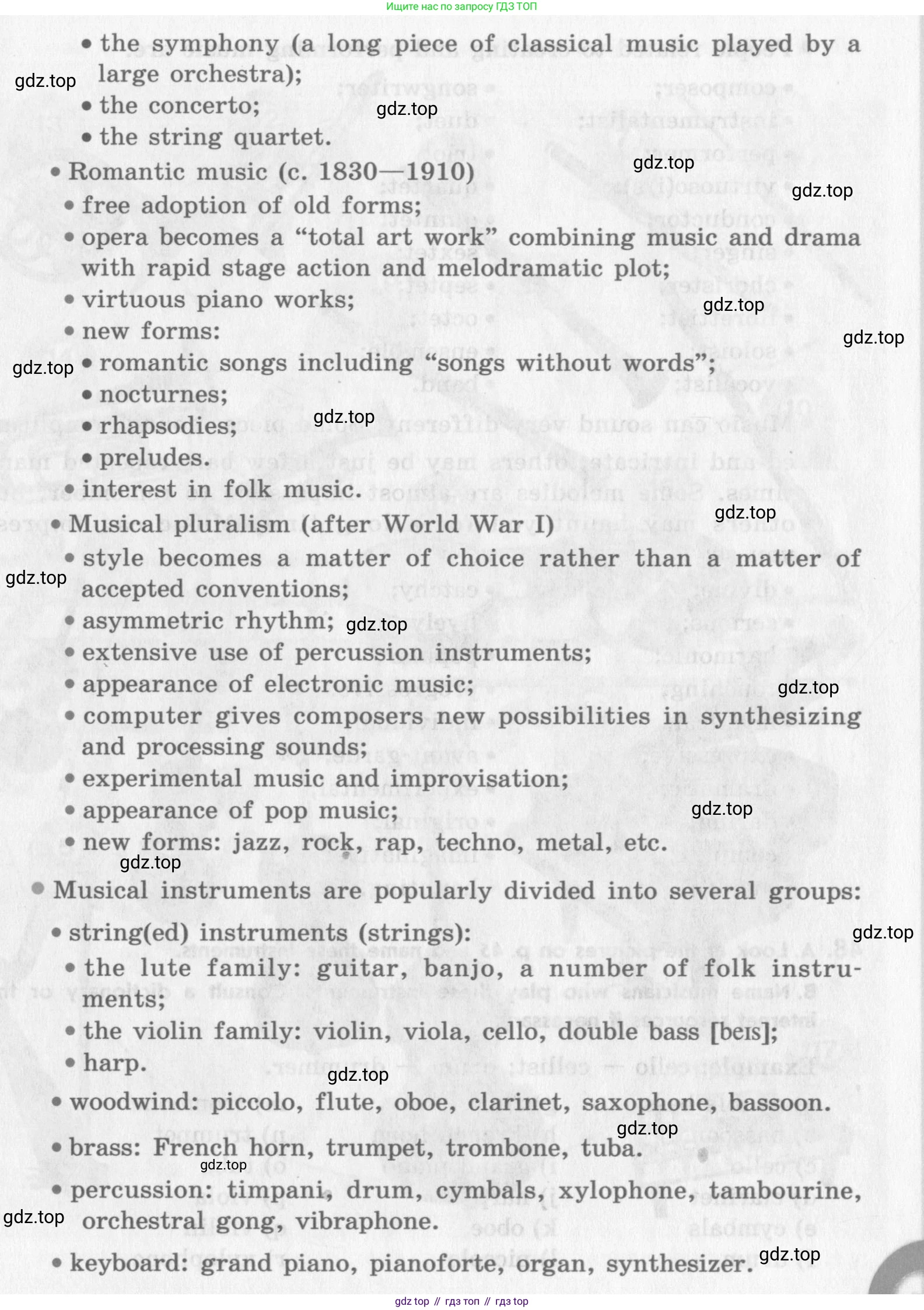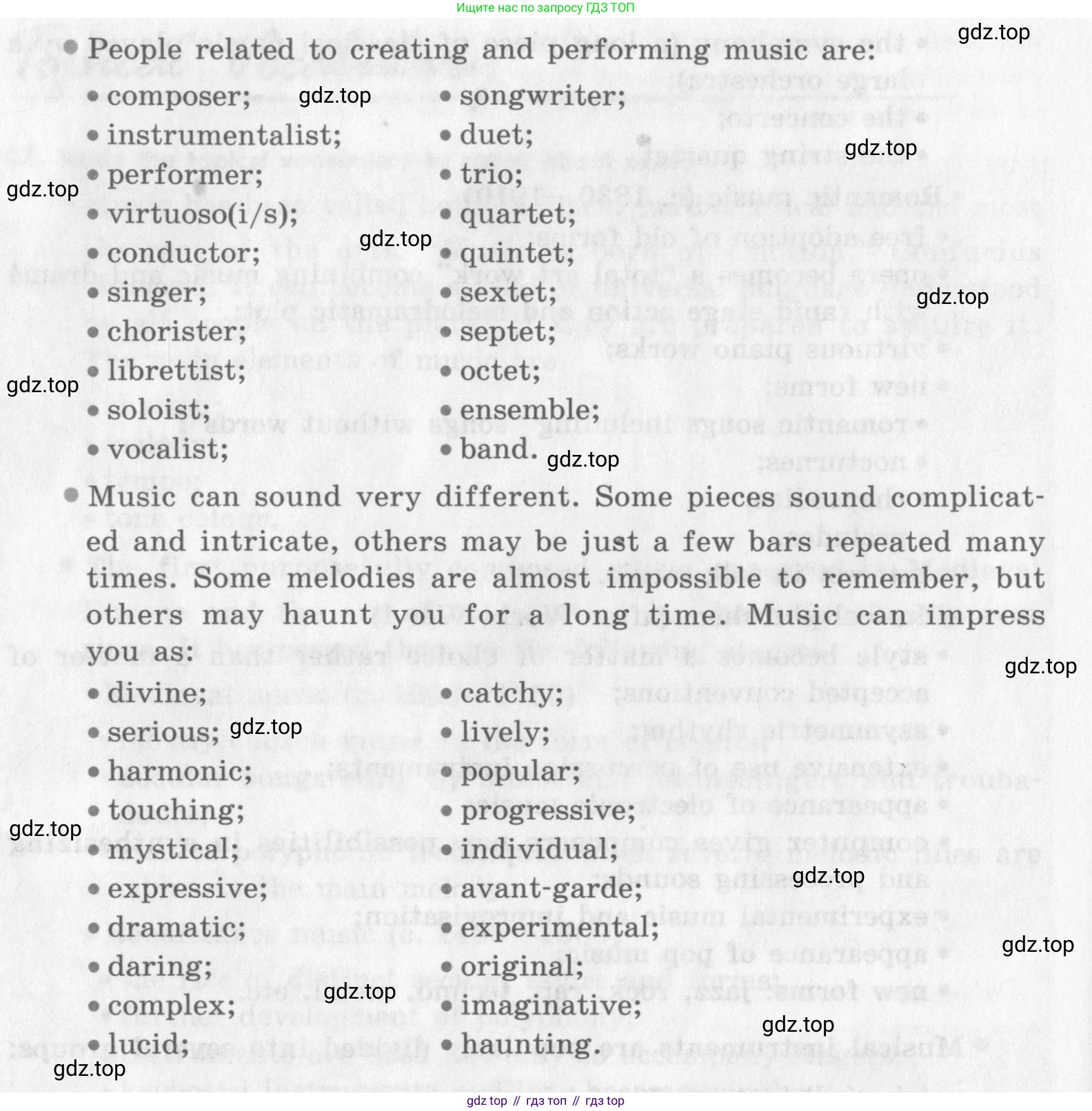Номер 47, страница 42 - гдз по английскому языку 11 класс учебник Афанасьева, Михеева

Авторы: Афанасьева О. В., Михеева И. В.
Тип: Student's book (Учебник)
Издательство: Просвещение
Год издания: 2014 - 2026
Уровень обучения: углублённый
Цвет обложки: белый, красный
ISBN: 978-5-09-034233-9
Популярные ГДЗ в 11 классе
Присоединяйтесь к Телеграм-группе @top_gdz
ПрисоединитьсяМы подготовили для вас ответ c подробным объяснением домашего задания по английскому языку за 11 класс, для упражнения номер 47 расположенного на странице 42 к Учебник (Student's book) 2014 года издания для учащихся школ и гимназий.
Теперь на нашем сайте ГДЗ.ТОП вы всегда легко и бесплатно найдёте условие с правильным ответом на вопрос «Как решить ДЗ» и «Как сделать» задание по английскому языку к упражнению №47 (с. 42), авторов: Афанасьева (Ольга Васильевна), Михеева (Ирина Владимировна), ФГОС (старый) углублённый уровень обучения учебного пособия издательства Просвещение.





















